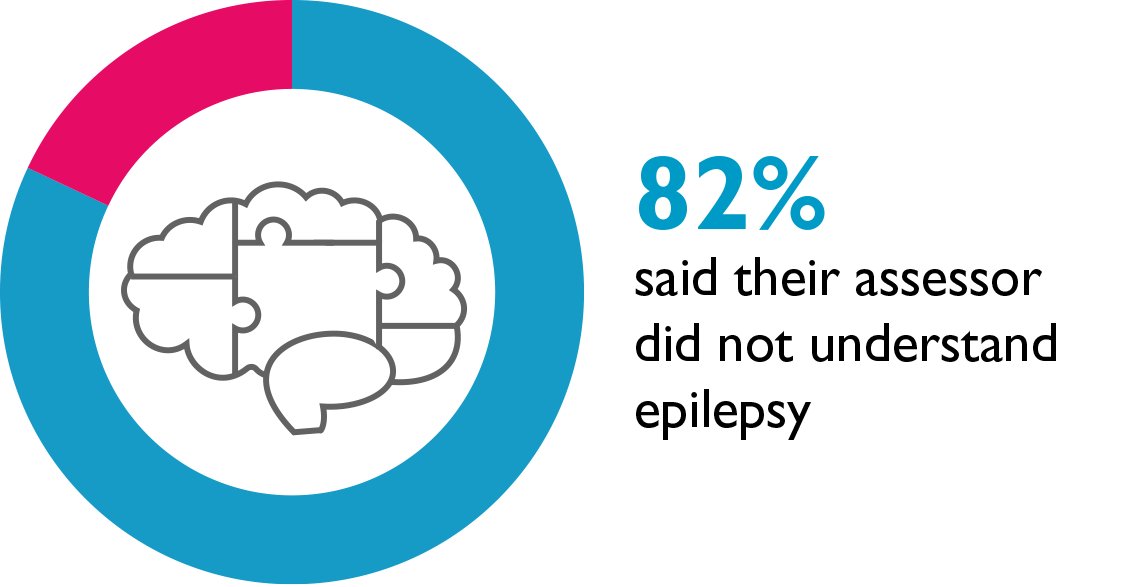
Thank you Vicky for sharing your experience of #PIP with us in this thread 👇
"I was born with nocturnal epilepsy and have tried many medications but none have been able to fully control it and my epilepsy is too widespread to have surgery. I had a VNS fitted in March.
"I was born with nocturnal epilepsy and have tried many medications but none have been able to fully control it and my epilepsy is too widespread to have surgery. I had a VNS fitted in March.

Sometimes I now have tonic seizures or short clonic seizures instead of tonic-clonic and partial seizures though I do still have some tonic clonic and partial seizures. I also have problems using my right arm following a suspected stroke when I was a baby.
All of this impacts my life a lot - it affects my memory and I struggle with basic things such as cutting up bits of food. I know some of this is linked to my stroke but know my epilepsy is also a factor. When I have a seizure it's my right arm which shakes the most and thumps
I have very little energy and can't get a paid job, so my husband does a lot of work to support and look after me. He then gets exhausted which makes me feel guilty. I’m not allowed to drive so I must either get a lift off a friend/family, get a taxi or use public transport.
I hate using public transport as I’ve been bullied and shouted at a lot for not looking disabled but sitting in the disabled seats, even though they’re the only seats I can use without pain given a coccyx injury I have.
On a scale of 1 to 10 for how stressful I found the process when applying for PIP, I would say it was a 10. The assessor was hopeless and left out a lot of information I’d told her or misquoted me about what I put in my form.
For example, I told her I need my pills in blister packs from the chemist as I can’t organise them myself and that I need to have reminders on my phone to take them, but even then my husband has to remind me as sometimes I don’t notice the phone reminders when I’m really tired.
Yet despite this, the DWP said I needed no help/points for handling my medication as the assessor hadn’t included any of those details in her report. I also found it very stressful going through the tribunal which caused me to have more frequent and stronger seizures.
I was initially turned down for PIP – the DWP gave me a deadline to send my appeal letter in by but it took over three months to get the medical report from my assessor so I knew what to put in the appeal letter.
I had to guess what to write in the letter to get it in in time for the deadline. If I’d received the report on time I could have written a more relevant appeal letter and maybe I wouldn’t have had to go to court.
My PIP has been extended until December 2024, but I hate the thought of re-applying and am worried about the cost of living going up as I very much doubt they’ll increase PIP accordingly.
I attend a pain support group with other disabled people and no-one likes the DWP because they’ve caused so many problems for all of us with our PIP claims.
I want the DWP to be more organised. They shouldn’t give people a deadline to appeal their case and not provide us with the documents we need to prepare for the appeal until after the deadline.
I want them to employ more qualified and more professional assessors – not ones who miss out vital information that they’ve been told in their reports."
So what can you do to help #MakeWelfareFair for people with epilepsy?
Head to epilepsy.org.uk/welfare-campai… and write to your MP with your own experiences of PIP. We need as many MP's as possible to support our work and make sure changes are implemented. Thank you.
Head to epilepsy.org.uk/welfare-campai… and write to your MP with your own experiences of PIP. We need as many MP's as possible to support our work and make sure changes are implemented. Thank you.
• • •
Missing some Tweet in this thread? You can try to
force a refresh






